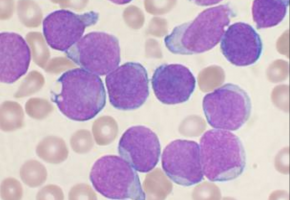
Acute myeloid leukaemia (AML) is an aggressive form of blood cancer in which the majority of cases express CD33 on the surface of the leukaemia cells.
AML is challenging to treat in older patients since intensive chemotherapy is poorly tolerated, and standard therapies, such as the hypomethylating agents (HMAs) azacitidine and decitabine, yield modest response rates.
Data are presented from an ongoing phase 1 trial evaluating vadastuximab talirine (SGN-CD33A; 33A) in combination with standard therapies (azacitidine, decitabine) in older AML patients who have declined intensive frontline therapy.
33A is an antibody-drug conjugate (ADC) targeted to CD33, comprising a novel antibody system stably linked to a highly potent cellkilling agent.
CD33 is expressed on leukaemic blasts in nearly all AML patients and expression is generally consistent regardless of age, risk factors, or disease characteristics.
Thus far, 53 AML patients with median age of 75 years have been treated with this combination.
Of 49 efficacy evaluable patients treated with 33A combined with either azacitidine or decitabine, the composite complete remission rate (CR CRi) was 73 percent, which compares favourably with historical studies of HMA monotherapy in this population.
The 30- and 60-day mortality rates were two and eight percent, respectively.
The most common Grade 3 or higher treatment-emergent adverse events occurring in 20 percent or more of patients were febrile neutropenia, thrombocytopenia, anaemia and neutropenia.
The combination of 33A and HMAs was well-tolerated and yielded encouraging response rates in older AML patients.
Source: EHA